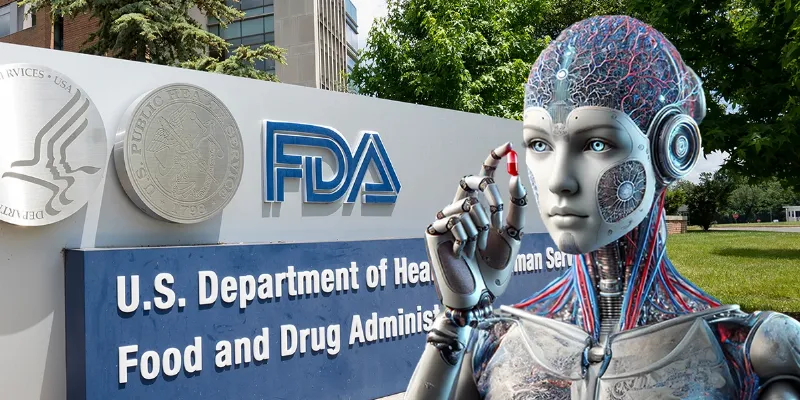FDA Announces AI Strategy with First AI-Assisted Scientific Pilot for Drug Review

For the first time, the FDA completed a generative AI-assisted scientific review pilot, cutting review tasks from days to minutes. Commissioner Dr. Martin Makary announced plans for full AI integration across all FDA centers by June 30, 2025. The rollout aims to accelerate drug reviews, reduce administrative burden, and modernize regulatory workflows using a secure, unified AI platform.
The U.S. Food and Drug Administration (FDA) has announced the completion of its first generative AI-assisted scientific review pilot to integrate artificial intelligence across all centers. Speaking candidly, FDA Commissioner Dr. Makary, described the results of the pilot as “game-changing.”
“I was blown away by the success of our first AI-assisted scientific review pilot. We need to value our scientists’ time and reduce the amount of non-productive busywork that has historically consumed much of the review process. The agency-wide deployment of these capabilities holds tremendous promise in accelerating the review time for new therapies,” Dr. Makary stated in the announcement.
The Pilot That Changed Everything
The pilot, conducted within the Center for Drug Evaluation and Research (CDER), tested generative AI tools in real-world regulatory workflows. These tools assisted scientific reviewers by automating time-intensive, repetitive tasks—think formatting, data collation, and summarization—without compromising accuracy.
Jinzhong (Jin) Liu, Deputy Director of the Office of Drug Evaluation Sciences at CDER, underscored the impact: “This is a game-changer technology that has enabled me to perform scientific review tasks in minutes that used to take three days.”
For a regulatory agency that sifts through millions of pages of clinical data annually, this leap in efficiency could translate into faster approvals, shorter development timelines, and ultimately, earlier access to life-saving treatments.
From Pilot to Full Deployment
The FDA’s AI strategy has moved rapidly from vision to action. Each center across the agency—whether focused on drugs, biologics, medical devices, or food safety—has been directed to begin immediate deployment of generative AI systems tailored to their specific needs. The rollout will culminate in a unified, secure AI platform fully integrated with the FDA’s internal data systems by the end of June 2025.
Spearheading the effort is Jeremy Walsh, the agency’s newly appointed Chief AI Officer, alongside Sridhar Mantha, a seasoned informatics leader from CDER. Both bring deep experience in large-scale federal technology initiatives, ensuring the program is grounded in both ambition and operational discipline.
What Comes Next?
The focus now shifts to scaling functionality, increasing user accessibility, and refining generative AI tools for context-specific applications across FDA divisions. Enhancements will include better document integration, more intuitive interfaces, and mechanisms to ensure compliance with stringent information security and regulatory standards.
While technical implementation is proceeding at pace, the cultural shift within the FDA is just as significant. For an agency long characterized by procedural rigor and cautious change, the embrace of AI as a strategic asset signals a new era in regulatory science—one in which human judgment and machine intelligence coalesce to serve public health more swiftly and effectively.
“There have been years of talk about AI capabilities in frameworks, conferences and panels but we cannot afford to keep talking. It is time to take action. The opportunity to reduce tasks that once took days to just minutes is too important to delay,” said Dr. Makary.
A Model for Global Regulatory Innovation?
The FDA’s initiative sets a precedent for other national and international regulatory bodies. If successful, the agency’s AI integration could serve as a blueprint for accelerating drug development pipelines worldwide—particularly as global regulators grapple with the twin pressures of scientific complexity and escalating workloads.
For now, the spotlight remains on June 2025. As health professionals and industry stakeholders await further updates, one thing is clear: the FDA is not merely adapting to the age of artificial intelligence—it is racing ahead to define it.











Comments
No Comments Yet!